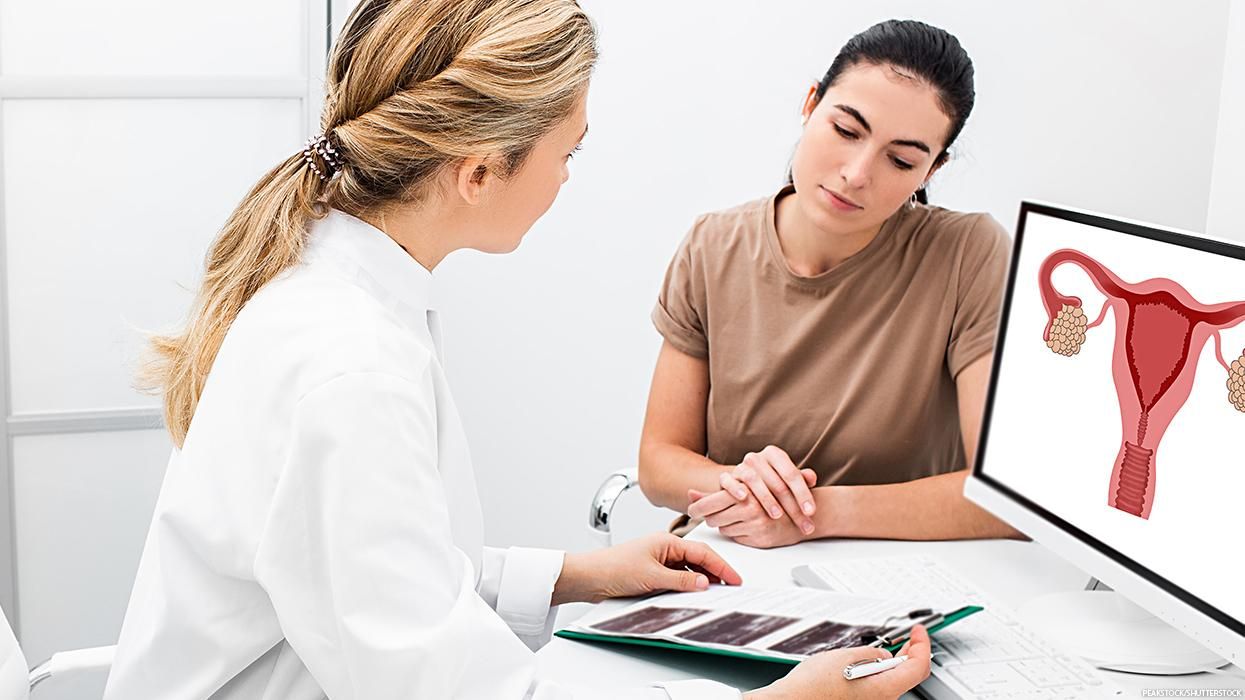(CNN) — The lives of the pregnant patients who walk into my Maternal Fetal Medicine clinic in Cleveland, Ohio, are never simple.
Because I specialize in diagnosing and treating high-risk patients, the people who come to me are already facing something they couldn't possibly have planned for. I think about them constantly: The mother carrying twins, faced with aborting one fetus or risk losing both. A scared 21 year old with a life-threatening infection that developed two days after her water broke too early.
I live in a state where the realities of abortion are stark and politicized. Since the June 24 Supreme Court decision in Dobbs v. Jackson Women's Health that overturned Roe v. Wade, I have been haunted by what will happen -- and already has happened -- to patients like mine.
Tara and Justin, whose story they have given me permission to share (we all also spoke with CNN), were forced to leave their home state because hospital lawyers did not agree with my medical opinion that the risks of her blood clotting disorder and autoimmune condition significantly outweighed the potential benefit of carrying a fetus with lethal anomalies. Tara was ultimately able to get the care she needed in Michigan, but at great emotional burden, financial cost and delay. If, god forbid, something had gone wrong for Tara medically during the days she had to wait to terminate her pregnancy, I'm not sure what I would have done.
As a physician who specializes in maternal-fetal medicine, my daily job description is to navigate the delicate balance between the pregnant person and fetus. I cannot consider one without the other; I have spent my entire career treating pregnant patients who are struggling in the morally fraught, emotionally exhausting gray areas so many anti-abortion politicians seek to ignore or pretend do not exist. And so it felt like a slap in the face to be told by lawyers, after over 11 years of postgraduate medical training and expertise, that my medical opinion is not enough for the law to permit me to provide the care I am trained to give.
As many physicians do, I also have more than one job. My other office -- where I work as a board-certified obstetrician-gynecologist, not a maternal-fetal specialist -- is at a clinic that regularly provides abortion care to all kinds of patients. Their lives are never simple, either.
They are the graduate student who needs to finish their meticulous experiments before grant money runs out, the new mother of twins who had been misinformed that breastfeeding was a foolproof form of contraception and cannot take on a third child, the rape victims, the newly pregnant hospitality worker who lost her job due to the Covid-19 pandemic, the patient whose escape plan from their abuser did not include being tied to them forever through a child, the patient for whom pregnancy was not a goal at this time.
Patients sometimes drive for over 12 hours to seek care at this clinic. Just as I am honored to care for my medically high-risk patients, I am also proud to ensure patients who need abortion care for these other reasons have access to it. I am proud to support them in their choice to live their lives as they had envisioned.
In the more than 100 days since Roe fell, people in my position -- abortion providers and those caring for pregnant patients -- have aged 10 years. Many of us feel like pawns in a game over which we have no say. Naïve as it may seem, most of us never envisioned our careers becoming the political collateral damage they currently are -- torn between caring for patients, losing our medical licenses or going to jail.
The villainizing of patients who need care and my colleagues who can provide that care, the constant misinformation about abortion, the prolonged trauma from the never-ending hoops patients must jump through, all weigh heavily on us.
The legal reality of abortion changes frequently and unexpectedly in my home state of Ohio. In 2019, Governor Mike DeWine (who is up for reelection next month) signed a law banning abortion after early cardiac activity is detected, usually around six weeks into a pregnancy (before many women even know they are pregnant). That law, which was blocked by a federal judge who said it would likely be ruled unconstitutional, took effect after Dobbs struck down Roe v. Wade.
Already, since Tara and Justin's experience, this law that forced them to travel out-of-state has been put on hold by a judge's preliminary injunction, which means it will not be enforced while litigation over it is still pending. But hotly contested races in the midterm elections will likely have a powerful impact on what comes next. I have to keep abreast of laws in our neighboring states as well, as I often coordinate out-of-state abortion care.
It's hard to practice medicine when you're always bracing for the next legal crisis that could harm your patients. I talk to hospital lawyers more frequently than any physician should, begging and pleading on patients' behalf, frustrated that patients cannot receive the same care as they would in a different state.
Every time I am forced to turn a patient away, that burning candle inside me, once a roaring and passionate fire in a young student excited to embark upon a career of helping others, dims ever so slightly. This serious breach of my duty as a physician is not easily recovered from, even when I am powerless to do otherwise.
I worry about my community -- providers and patients alike. I think about how scared my patients must be traveling to another state, how quickly their finances are drained, how alone they must feel. I worry they will think I didn't fight hard enough for them, though I know they can hear the cracks in my voice when I tell them the hospital said they weren't sick enough.
But most of all, I worry that the next lawyer I discuss a complex case with will not understand, and that the patient who needs an abortion will be denied. I worry they will lack the time, money, transportation, and support to get the care they need. And this denial, which is not in alignment with my medical opinion or the patient's wishes, will forever alter their life. I am scared they will die.
But I still experience joy in my job sometimes. The trembling hands of a college student, suddenly still after swallowing the first pill of their medication abortion regimen, whispering with increasing confidence, "I'm going to be ok." The tears of a transplant recipient dry when she knows she won't have to go back on the transplant list when her already tenuous kidney fails again during another pregnancy.
The enormous weight on the shoulders of a single mom lifts, now that she can focus on the family she has and the career she wants, free of the constraints of an unwanted pregnancy. I take some comfort from knowing that the shattered hearts of Tara and Justin -- who desperately wanted the baby they had to say goodbye to -- can finally start to heal now, knowing they did what was right for Tara's health and spared their baby, who could not have lived, a short lifetime of pain.
It's these moments of hope, often cloaked in grief, that help those of us wearied by the dogfight in the political trenches to stand up one more time. Our sails are lofted by the outpouring of support from the general public, our colleagues in other specialties who are stepping up to organize and rally on our behalf and our governing bodies -- such as the American College of Obstetrics & Gynecology and the American Medical Association -- that are unequivocal in opposing abortion bans.
But this battle comes at a high cost for all of us. Patients seeking abortion care and providers of that care should not be leveraged as political pawns or pushed to the forefront of national elections.
Patients should be allowed to simply be patients, to make medical decisions that align with their faith, family needs and their health, without interference from the government. They should be able to receive accessible, compassionate care regardless of what state they live in. And doctors should be allowed to simply be doctors. I should be allowed to care for my patients without fear of retaliation or legal jeopardy.
When abortion bans exist, this simple objective becomes impossible.
Editor's note: This essay is part of the CNN Opinion series "America's Future Starts Now," in which people share how they have been affected by the biggest issues facing the nation and experts offer their proposed solutions. Dr. Mae-Lan Winchester, an obstetrician-gynecologist and specialist in maternal-fetal medicine, is an assistant professor at Case Western Reserve University and a fellow with Physicians for Reproductive Health. The views expressed here are her own. They do not represent the opinions of Case Western Reserve University. Read more opinion on CNN.
The-CNN-Wire
™ & © 2022 Cable News Network, Inc., a Warner Bros. Discovery Company. All rights reserved.


















































